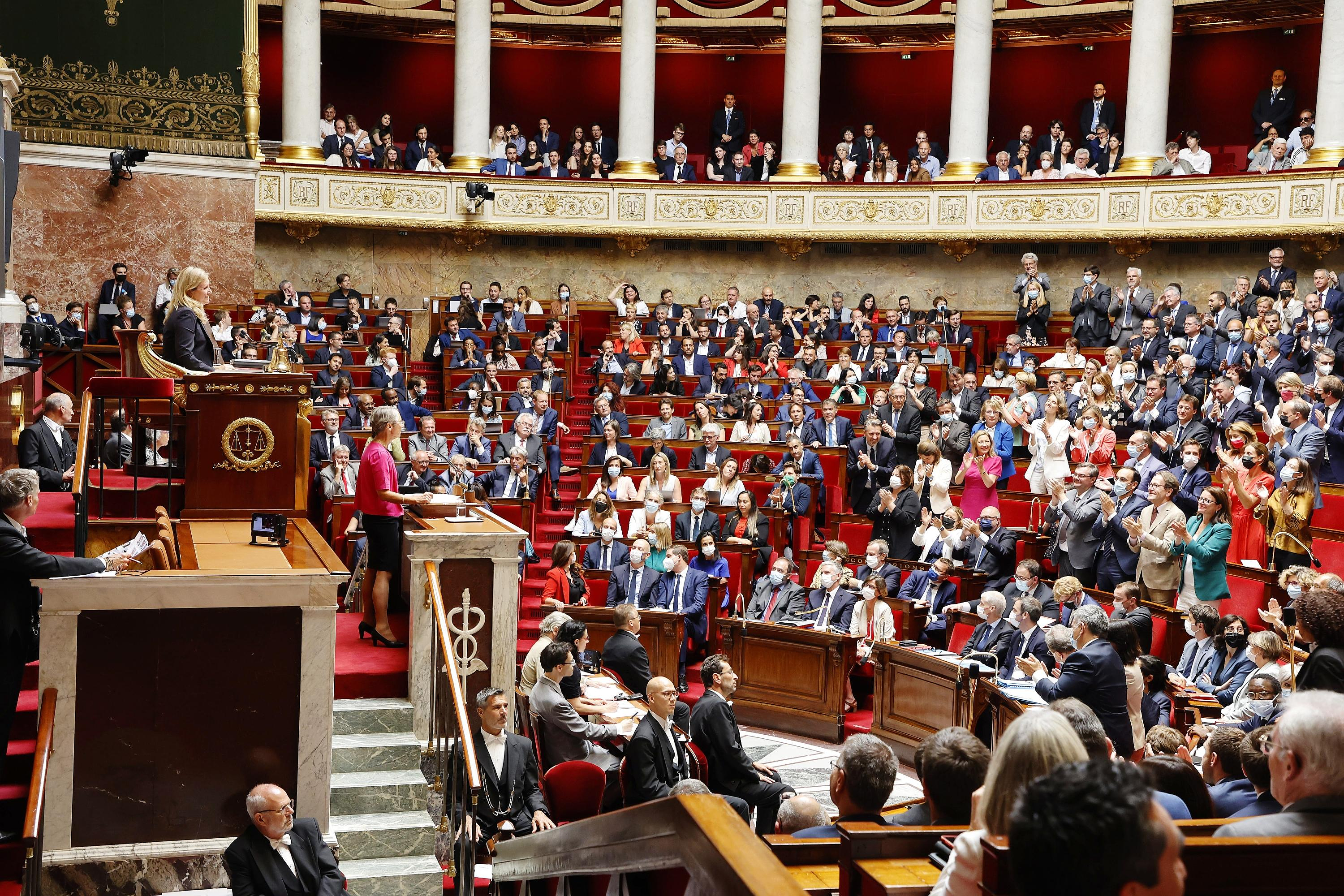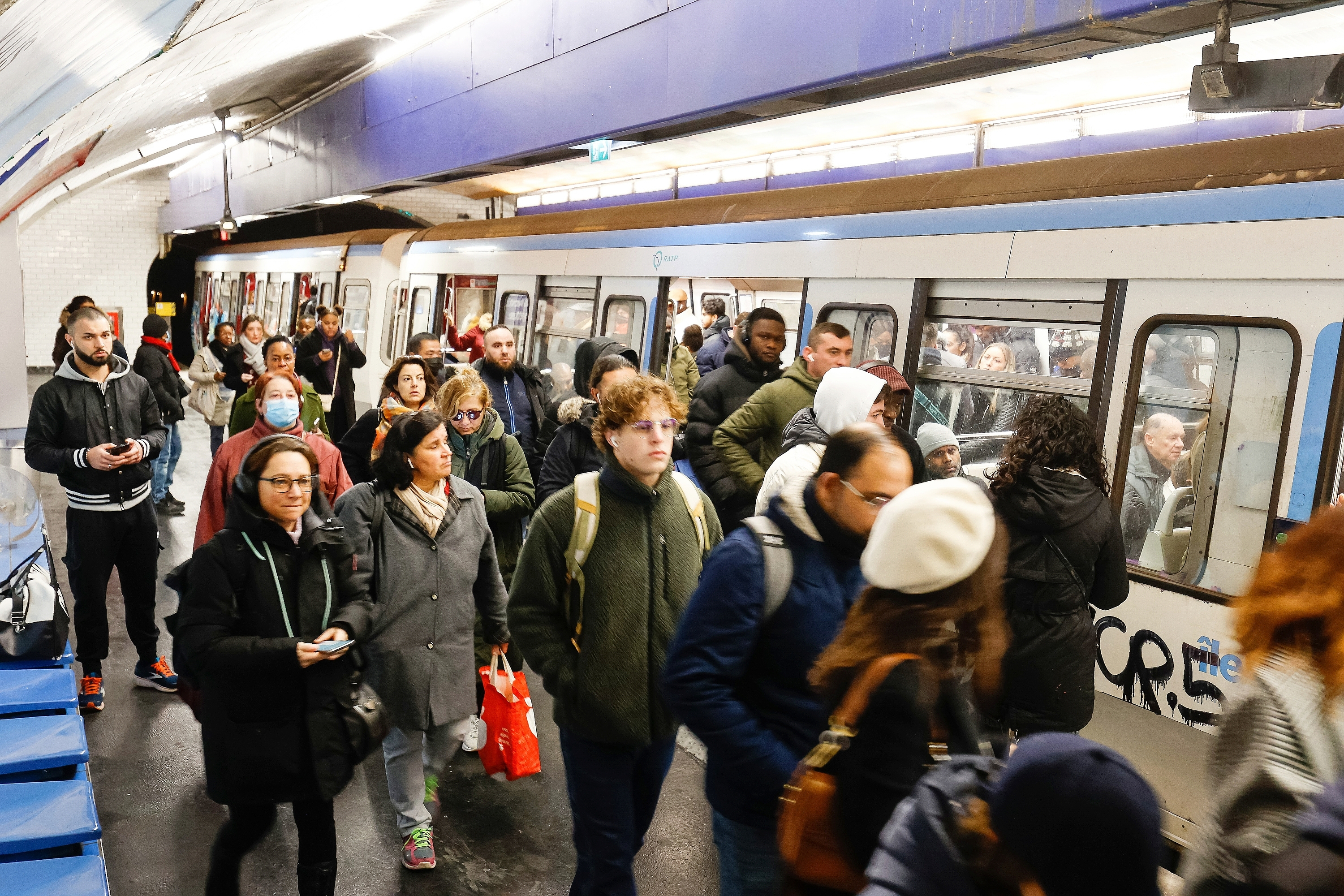For several weeks, the founder of the Folle Journée de Nantes has been back in the sun of Provence to prepare, in the shade of some 365 giant plane trees in the park of the Château de Florans, the 43rd edition of the International Piano Festival of La Roque. d'Anthéron, of which he has been artistic director since 1981. On the eve of the kick-off of the event, Thursday, by the French pianist Bertrand Chamayou and the Orchester de Chambre de Paris (conducted by Lionel Bringuier), René Martin returns to the challenges of this 2023 edition. Placed, once again, under the sign of youth and discovery.
LE FIGARO. - During the health crisis, you had to refocus on the Château de Florans, the cradle of the festival. This year, you are multiplying your outings, with concerts in Gordes, Aix, Eygalières and no less than eleven meetings in Silvacane! Have you turned the page on the Covid years?
Rene MARTIN. - It would be premature to answer yes. If only because from the attendance point of view, we have not returned to the figures for 2019. If we take the figures for last summer, the first year in which we could reconnect with an almost complete edition , and leaving the enclosure of the Château de Florans park, the attendance rate shows a drop of 5% compared to the figures of four years ago. This is a phenomenon that we observe in all festivals. However, things are changing. La Folle Journée was able to start again this winter with 120,000 people gathered in Nantes. We feel that a significant part of our elderly audience has been frankly traumatized and will not return. At the same time, we are starting to see a new audience of parents between 45 and 60, who come with teenagers. Consolidating this new base will take a long time, but it is there. This new public returns to the concert. Perhaps because the crisis made us realize that we needed to get out. So we adapt, with a new offer for families, precisely: for a full price seat purchased, the seat under 18 is free.
How are you doing financially? Especially after two years of health crisis, and costs that must have exploded with the energy crisis?
The luck of the La Roque d'Anthéron festival is to be able to finance itself up to almost 75% thanks to ticket sales and record sales. It is a fairly unique model in the landscape of French classical music festivals. And that works largely thanks to the strength of volunteers. 250 volunteers work every summer to make the festival possible, and without them we wouldn't exist! But also thanks to the enthusiasm and loyalty of the artists, who accepted that we balance the fees to adapt to the constraints encountered in recent years. It was out of the question to pass these on to the spectators and the price of the seats. We want the festival to remain accessible by all means. Like the park of the Château de Florans, which belongs to everyone. And then there is no discrimination when you go to La Roque. No fancy dress expected like in some other festivals. We come as we want. The only watchword is to feel in your place.
Over the past two years, to protect yourself against the risk of cancellations, you have refocused a lot on French artists or artists living in Europe. What about this year?
This edition will be a discovery edition of all the names of the piano in the world. We will have the main winners of the major international piano competitions since last March. With, of course, an explosion of Asian pianists: Chinese, Koreans, Japanese... But not only. All exciting discoveries. From the first prize in the last Long Thibaud competition, Masaya Kamei, originally from Japan, to the Korean Yunchan Lim who won the Van Cliburn. Passing by the Canadian Kevin Chen, winner of the Rubinstein competition, or his compatriot Bruce Liu, winner of the Chopin competition!
You also program young musicians who are still teenagers. The La Roque festival is now coming out of colleges?
(Laughs) No. But this year I wanted to go even further by betting on the future, and calling on those who may be the winners of these major competitions of tomorrow. Among these very young talents, there is Arielle Beck. Barely fourteen years old, but endowed with a beautiful musicality, and already very present on the internet. She was spotted by Martha Argerich during a competition and is already represented by her agent, Jacques Thelen. There is also Alexandra Dovgan, sixteen years old, a protege of Grigory Sokolov, Russian, just like him. Or a pianist that I take the risk of presenting when no one knows him in France, but who is none other than the grandson of the immense Heinrich Neuhaus: Adi Neuhaus.
You value it, your status as a "nursery" of young talent!
Yes, because it is part of the festival's DNA. La Roque d'Anthéron is the festival of the great piano masters. The Grigory Sokolovs, Maria Joao Pires and others. But it is also a festival that was built from his revelations. It's in his genes. I never wanted it to be just the unmissable meeting of the big stars. Nikolai Lugansky started here. Alexander Kantorow too. It is also the discovery of these young pianists that contributes to writing the history of the event. Not just the big names you find everywhere.
Young people whose teachers you no longer hesitate to introduce to the public. As you did a few years ago by giving Rena Shereshevskaja a spotlight. For what ?
Because I think that in the history of the piano, we must above all not rule out the teachers. The soloists owe everything to their master, and as one of the first piano festivals in Europe, it seemed important to me to show that the story of an interpretation is also a story of preparation. The relationship between master and student, I think it's beautiful! Nothing moves me more than to see a soloist of 30 or 40 years old, internationally recognized, continue to play the pieces of his repertoire to his master for his advice or his consent. It's like the parents. You are a parent until the end of your life or that of your child. It is the same for teachers and their students. This year, I wanted to salute Hortense Cartier Bresson. She counts among her students personalities such as Théo Fouchenneret or Guillaume Bellom. She is a woman who has dedicated her life to others. Like Jean-Claude Pennetier. It gives a tone to the piano school.
You are also digging into the groove of female composers, with the return of the now traditional “Regards de femmes” day. "Aren't you worried about being accused of indulging in fashion?
No, because I believe that there is much more than a simple fashion effect here. We are trying to catch up with a form of forgetfulness and for me, we are only at the beginning. The history of piano music in the 19th century was very often made through meetings in salons, which most of the time were managed by women. We cannot therefore deny the essential role they were able to play even if many of them remained in the shadows. But Marie Jaëll, friend of Liszt, was a diabolical pianist. Holmès also wrote magnificent pieces for orchestra. However, it is very important to keep this enthusiasm for rediscovery in moderation. To choose the cycles that we bring to light. Because not everyone is equal. This year, we will thus be putting the spotlight on this great extraordinary cycle by Fanny Mendelssohn that is Das Jahr, around the twelve months of the year, an exceptional work.
Baroque music is taking pride of place in the program this year, with no less than eleven concerts scheduled at Silvacane Abbey, more than half of which are harpsichord recitals! Have you toured the piano repertoire?
(Laughs) No. But the Baroque has always been part of the festival's programme. And then, I do not forget that the harpsichord is, so to speak, the ancestor of the pianoforte. This year, I wanted a great cycle at Silvacane around the harpsichord. Both to celebrate the joy of having been able to find, since last year, this magnificent and so inspiring cloister. And also to highlight all this new generation of baroque musicians and magnificent harpsichordists that we are lucky to have. From Jean Rondeau to Justin Taylor, including the formidable violists Salomé Gasselin and Lucile Boulanger. Without forgetting of course their elders: Skip Sempé or Pierre Hantaï. We will also welcome the great return of the Hantaï trio. But as you have seen, at the same time, the great composers for the piano are not forgotten: complete concertos by Beethoven, Chopin, Brahms or Rachmaninoff, Liszt day... Not to mention the music of the 20th century, with a spotlight on Philippe Schoeller, of which we will even host a world premiere. Or a tribute to Dutilleux, since he left us ten years ago, even if many seem to have forgotten him.
Electro is entering the program this year. Are you not afraid of losing part of your audience with such sidesteps?
I see it earlier as a pledge of openness. I like the idea that people who like this music think that they could be so sensitive to a prelude by Bach. Like jazz, which has long been a fixture at the festival. Moreover, we are talking about a surprising current, which is not the one we imagine when thinking about electro music. A tonal path that has its own way of integrating current music. If I take the case of Grandbrothers, a group that mixes piano and electronics, which we welcome the day after our opening concert, we are probably closer to the GRM, the Musical Research Group founded by Pierre Schaeffer in the 1950s, only beaches in Ibiza!

 Who was Dror Or, the Israeli father who died as a hostage in the hands of Hamas?
Who was Dror Or, the Israeli father who died as a hostage in the hands of Hamas? “Pay in cash”: at his trial, Donald Trump faced with an embarrassing recording
“Pay in cash”: at his trial, Donald Trump faced with an embarrassing recording Italy: a grandmother accidentally serves a bottle filled with wine to a baby, he has an alcoholic coma
Italy: a grandmother accidentally serves a bottle filled with wine to a baby, he has an alcoholic coma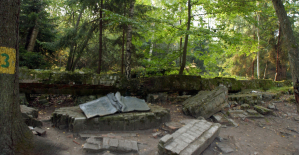 The mysterious skeletons of Hermann Göring's villa
The mysterious skeletons of Hermann Göring's villa Children born thanks to PMA do not have more cancers than others
Children born thanks to PMA do not have more cancers than others Breast cancer: less than one in two French women follow screening recommendations
Breast cancer: less than one in two French women follow screening recommendations “Dazzling” symptoms, 5,000 deaths per year, non-existent vaccine... What is Lassa fever, a case of which has been identified in Île-de-France?
“Dazzling” symptoms, 5,000 deaths per year, non-existent vaccine... What is Lassa fever, a case of which has been identified in Île-de-France? Sánchez cancels his agenda and considers resigning: "I need to stop and reflect"
Sánchez cancels his agenda and considers resigning: "I need to stop and reflect" Health carpooling, this source of savings which arouses the ire of patients and taxis
Health carpooling, this source of savings which arouses the ire of patients and taxis Tesla Model 3, MG4 and Dacia Spring.... With the end of the ecological bonus, these electric cars produced in China are seeing their sales fall
Tesla Model 3, MG4 and Dacia Spring.... With the end of the ecological bonus, these electric cars produced in China are seeing their sales fall For the 2024 Olympics, Airbnb commits to fighting prostitution in its accommodation
For the 2024 Olympics, Airbnb commits to fighting prostitution in its accommodation “Shrinkflation”: supermarkets obliged to alert their customers from July 1
“Shrinkflation”: supermarkets obliged to alert their customers from July 1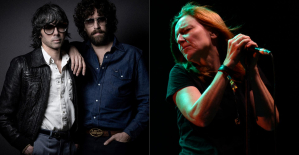 The electro of Justice and the echoes of Portishead
The electro of Justice and the echoes of Portishead 1924 Olympic Games: according to his daughter, the hero of Chariots of Fire was “not a bigot”
1924 Olympic Games: according to his daughter, the hero of Chariots of Fire was “not a bigot” The “German Brothel” in Yvelines: an uncertain future for the ruined residence
The “German Brothel” in Yvelines: an uncertain future for the ruined residence The eye of the INA: when Paul Auster visited Bernard Pivot
The eye of the INA: when Paul Auster visited Bernard Pivot Omoda 7, another Chinese car that could be manufactured in Spain
Omoda 7, another Chinese car that could be manufactured in Spain BYD chooses CA Auto Bank as financial partner in Spain
BYD chooses CA Auto Bank as financial partner in Spain Tesla and Baidu sign key agreement to boost development of autonomous driving
Tesla and Baidu sign key agreement to boost development of autonomous driving Skoda Kodiaq 2024: a 'beast' plug-in hybrid SUV
Skoda Kodiaq 2024: a 'beast' plug-in hybrid SUV The home mortgage firm rises 3.8% in February and the average interest moderates to 3.33%
The home mortgage firm rises 3.8% in February and the average interest moderates to 3.33% This is how housing prices have changed in Spain in the last decade
This is how housing prices have changed in Spain in the last decade The home mortgage firm drops 10% in January and interest soars to 3.46%
The home mortgage firm drops 10% in January and interest soars to 3.46% The jewel of the Rocío de Nagüeles urbanization: a dream villa in Marbella
The jewel of the Rocío de Nagüeles urbanization: a dream villa in Marbella Facing Jordan Bardella, the popularity match turns to Gabriel Attal’s advantage
Facing Jordan Bardella, the popularity match turns to Gabriel Attal’s advantage Europeans: a senior official on the National Rally list
Europeans: a senior official on the National Rally list Blockade of Sciences Po: the right denounces a “drift”, the government charges the rebels
Blockade of Sciences Po: the right denounces a “drift”, the government charges the rebels Even on a mission for NATO, the Charles-de-Gaulle remains under French control, Lecornu responds to Mélenchon
Even on a mission for NATO, the Charles-de-Gaulle remains under French control, Lecornu responds to Mélenchon These French cities that will boycott the World Cup in Qatar
These French cities that will boycott the World Cup in Qatar Monaco - Clermont: Minamino cornerstone, Fofana essential, the Clermont defense overwhelmed... The tops and the flops
Monaco - Clermont: Minamino cornerstone, Fofana essential, the Clermont defense overwhelmed... The tops and the flops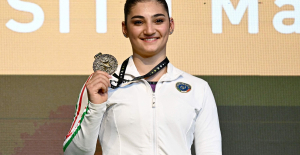 Gymnastics: two gold medals for the Italian Manila Esposito during the European Championships
Gymnastics: two gold medals for the Italian Manila Esposito during the European Championships Champions Cup: in pain, Leinster beats Northampton and qualifies for the final
Champions Cup: in pain, Leinster beats Northampton and qualifies for the final Liga: Real Madrid crowned champion of Spain after FC Barcelona's defeat in Girona
Liga: Real Madrid crowned champion of Spain after FC Barcelona's defeat in Girona




